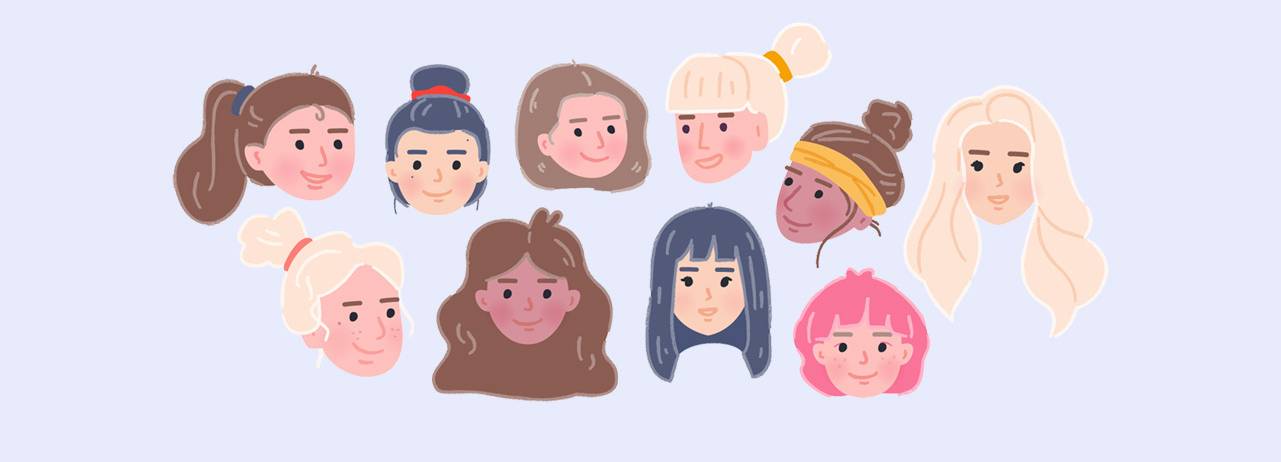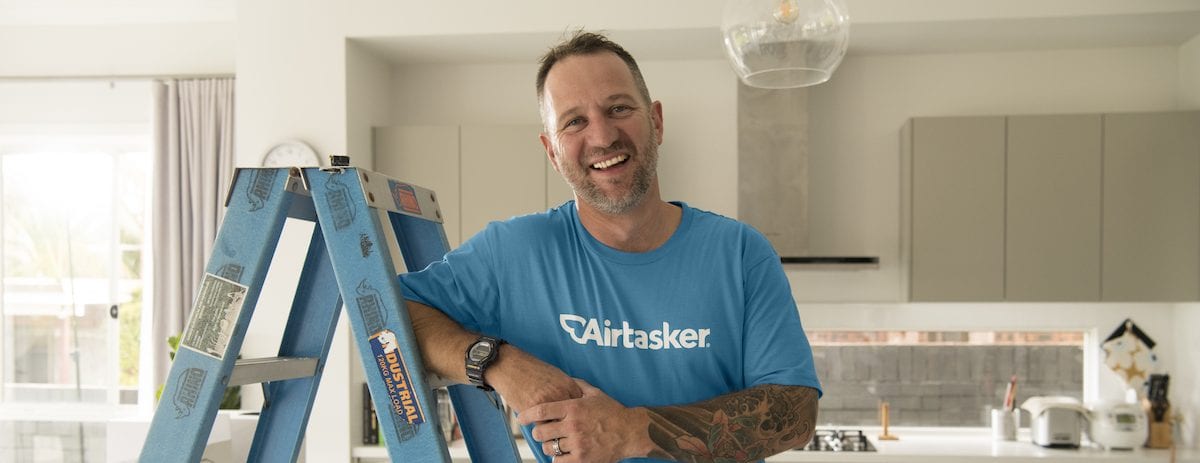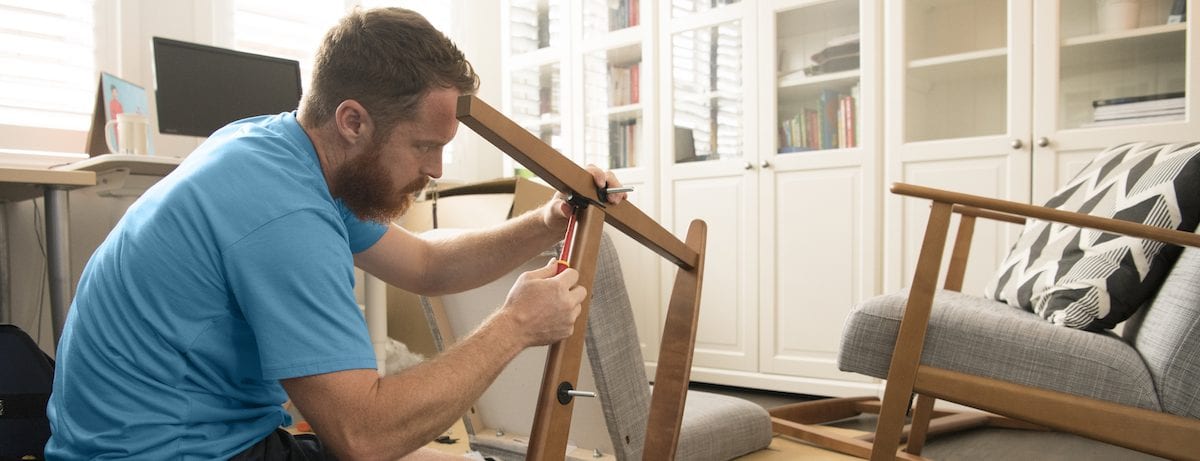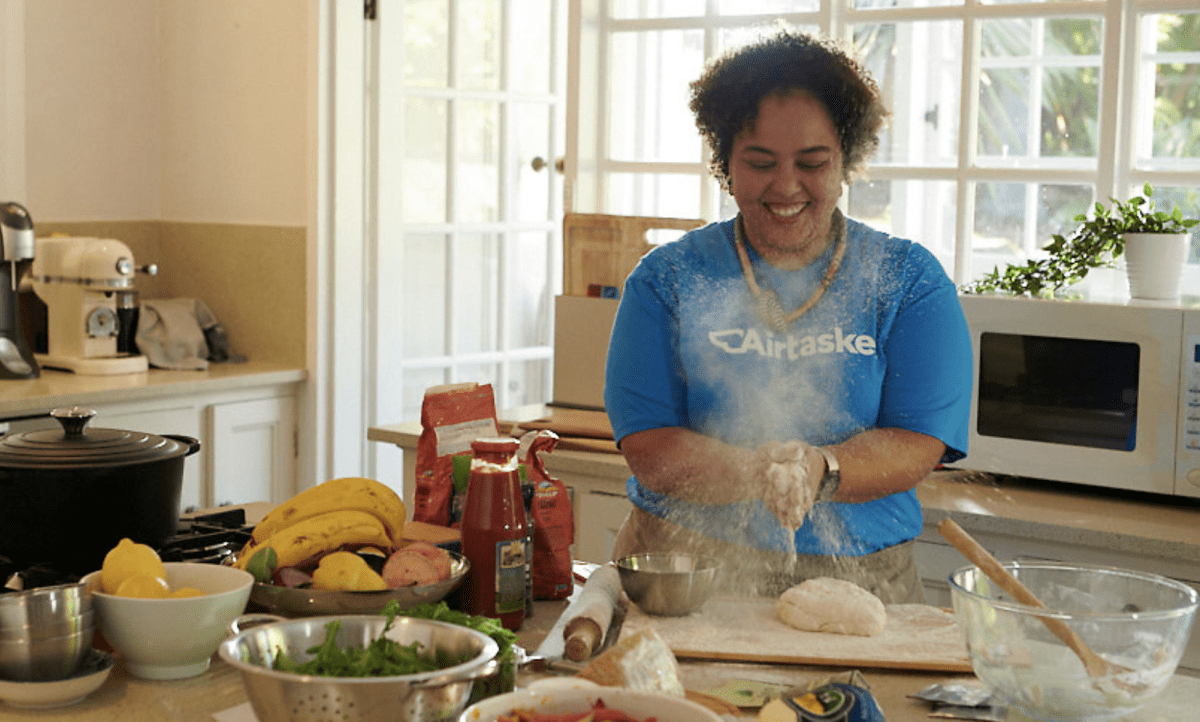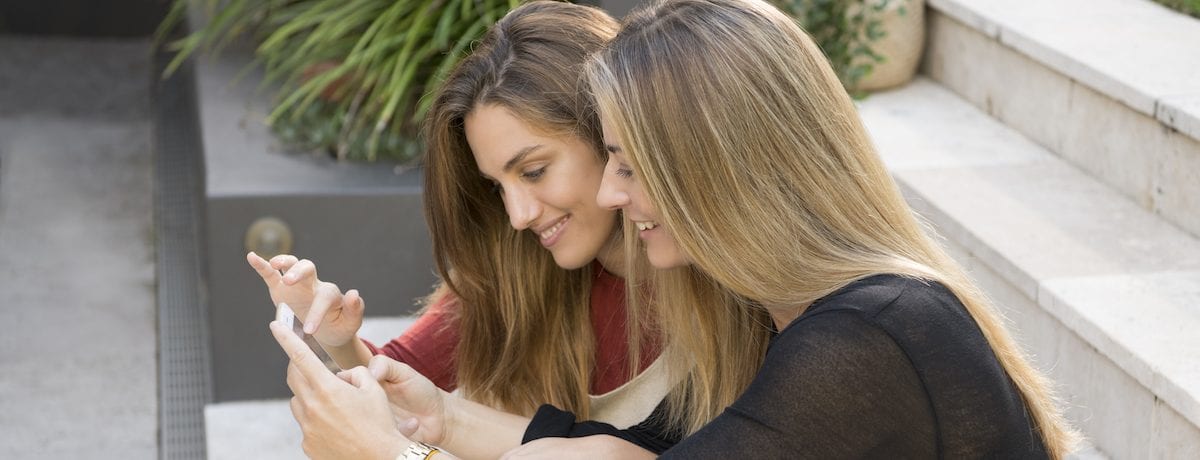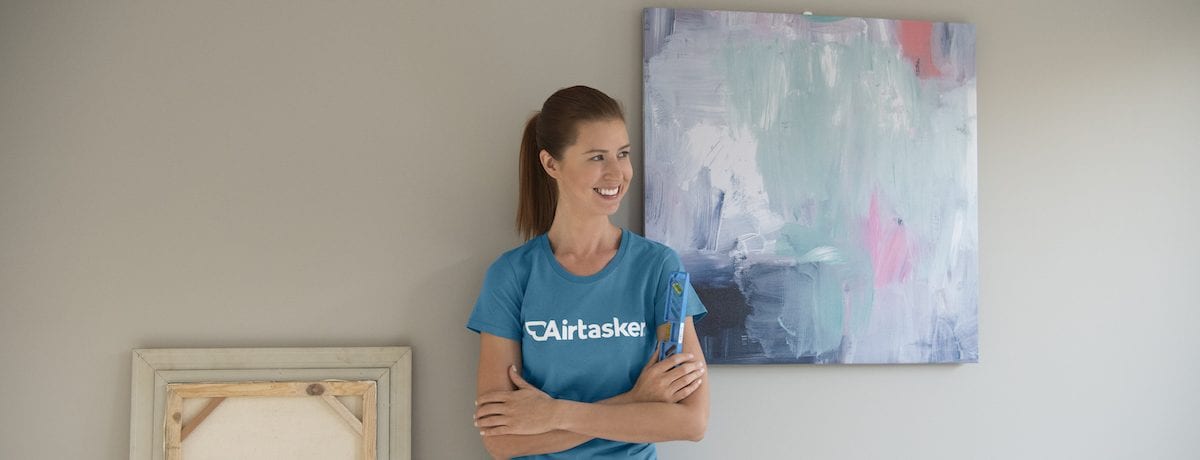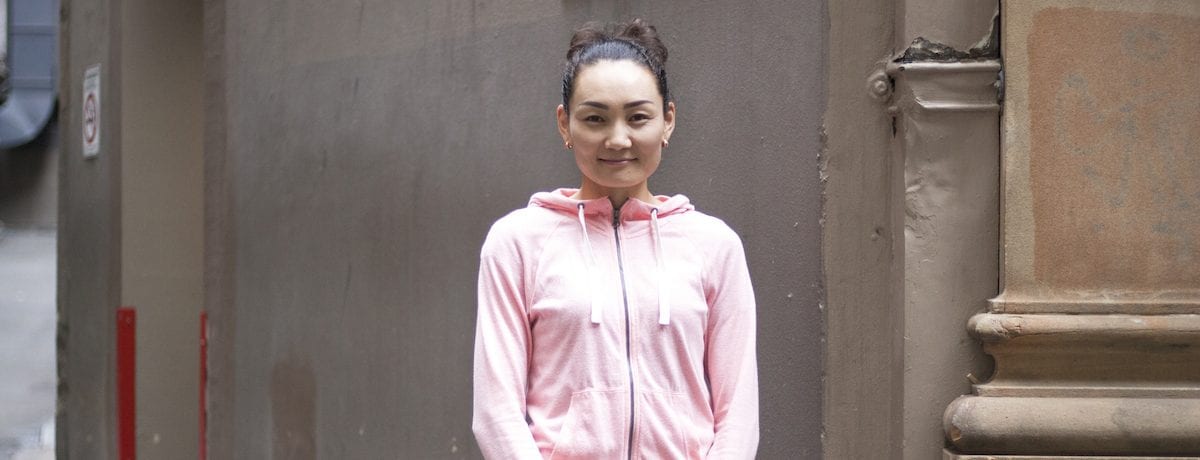“Imagine a gender-equal world.
A world free of bias, stereotypes, and discrimination.
A world that is diverse, equitable, and inclusive.
A world where difference is valued and celebrated.
Together we can forge women’s equality.
Collectively we can all #BreakTheBias.”
In honour of International Women’s Day, we’re paying tribute to the amazing women who have helped Airtasker become the platform it is today.
Get to know these brilliant sheroes as they share their insights and experiences in #BreakingTheBias, both in the community and workplace.
The Women of Airtasker
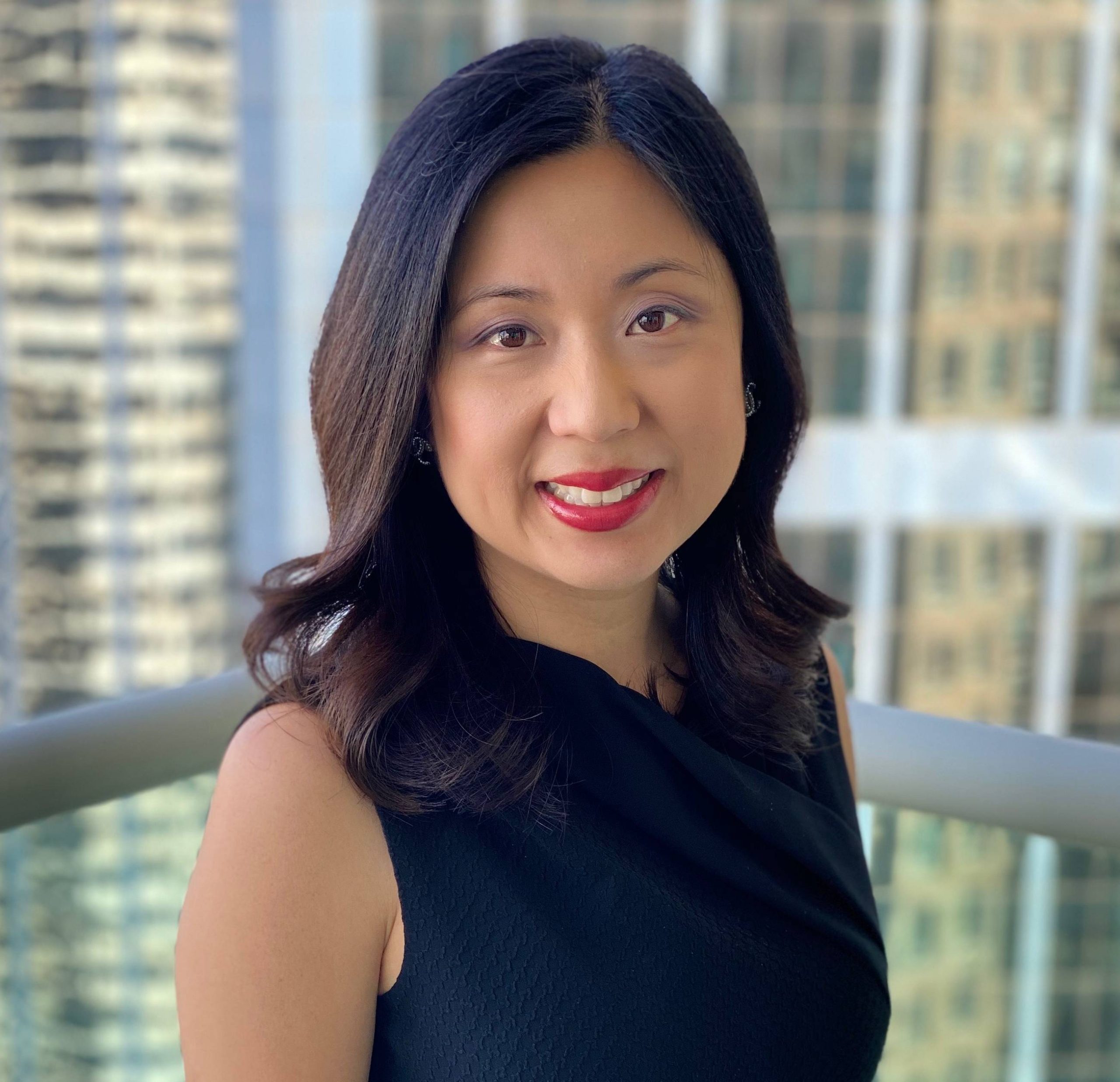
Angeline Lee
VP, Brand
The theme for this year’s International Women’s Day is #BreakTheBias. What does it mean to you, and why do you feel passionate about breaking down bias?
I was born and raised in an ethnic minority culture in Malaysia, where gender bias is expected and accepted. As a young girl, I was taught by my community to be dependent on men – that my role in the world was to be a subservient wife and care for my children. However, as I grew more confident in my skin, I learnt that the world is limitless of possibilities, especially with role models cheering you by the sidelines.
My role models are both inspiring women and men who look beyond stereotypes. I’m lucky enough to have my biggest role models within my immediate family and also colleagues who have constantly cheered me on along the way to be a better person, accepting failures, learning from them, and ultimately becoming a better leader and marketer.
What is the most important piece of advice you have been given in challenging bias in your career?
To make a big impact, it starts small with everyday moments. Focus on how this day will be different and what changes you can make moving forward. It’s about making a conscious effort to challenge ourselves to embrace inclusion, letting everyone have a voice and steering the conversations as leaders to turn learnings into tangible actions.
I’ve also found that sometimes tackling bias is just about having the conversation in a safe environment, helping each other show up differently without judgement.
What do you consider as your best work/achievement so far? What do you think made it possible?
My proudest work happens when my team builds a story together that drives meaningful purpose for themselves and customers. I believe that in the end, the results will only follow when everyone understands and believes in the importance of the role they individually play and how that contributes to the greater purpose of what we’re trying to achieve.
I truly believe that this has been the key to my success in steering big programs throughout my career. Whether it be transforming Dyson, a vacuum cleaner company, into a credible beauty brand, getting our younger cohort at Coca Cola to reconnect with the product through curated experiences, and now at Airtasker, amplifying the brand onto a global stage and making it a household name internationally.
Why did you choose the Marketing/Brand profession? What attracted you to it?
Growing up, I was an all-rounder – not particularly strong in either art or science, but enjoying a little of both. I actually think it’s the combination of the two and not having to be particularly deep in either that attracted me to grow a career in Marketing.
It’s the perfect blend of both worlds – the art of meaningful storytelling and the science of proving results. I also love the tangibility of seeing consumers’ reactions to the work and authentically being the customers’ voice in an organisation.
You’ve recently joined Airtasker as our first VP of Brand. How can we encourage more women to pursue a role in Senior Leadership in their careers?
I’ve loved every minute and wouldn’t change a thing! It’s definitely had its challenging moments. I’ve just returned from maternity leave, moved home, and have a whole new campaign to launch (let alone transitioning from PC to a MAC!).
But leadership is all about stepping outside your comfort zone and expanding the boundaries of what you’re capable of. Encouraging others to try new things whilst leading by example is by nature an uncomfortable space, so having a supportive network around you is the key to success.
That’s why I think helping more women to find and invest in their personal cheer squads will help set up more women to be successful in leadership roles. This includes supporting them to find inspiring professional networks or communities where they feel they belong and supporting both men and women to create their village at home.
What’s one small thing that you think everyone can do on a daily basis to help #BreakTheBias?
Ask yourself the question today, “What am I actively doing differently?” and spark the conservation with someone who can hold you accountable.
What is the strongest action of allyship you have experienced in your career?
The most memorable action of allyship I experienced was the endless support from a remarkable leader who encouraged me to embrace the uncomfortable moments that arise while discovering and developing my identity as a leader.
The key to transformational leadership is understanding your values and what events have shaped you and your identity over time. This can be a confronting learning journey. However, it did help me process the self-doubt in my head and biases about myself that I needed to shake off to be a great leader.
My ally encouraged me to lean into that. She created space to have my voice heard, called me out when I could be better and continued to open personal and professional growth opportunities.
Through her actions, she taught me that having an impact requires being personal and human. That being a leader who cares about the broader team more than anything else is what makes the collective feel unstoppable.
If you could have dinner with one famous woman from history, dead or alive, who would it be and why?
Michelle Obama. Life changed instantly for her, and I would want to soak up all the learning around dealing with change and how to have an equal voice in a very imbalanced society.
There is such an expectation when you are the partner of arguably the most influential person in the world. And what the First Lady is meant to be – there is a bias that you have to break down immediately. She really did this with such grace – she defined her role as the rock of her family universe and reset the terms of having her own voice on the world stage.
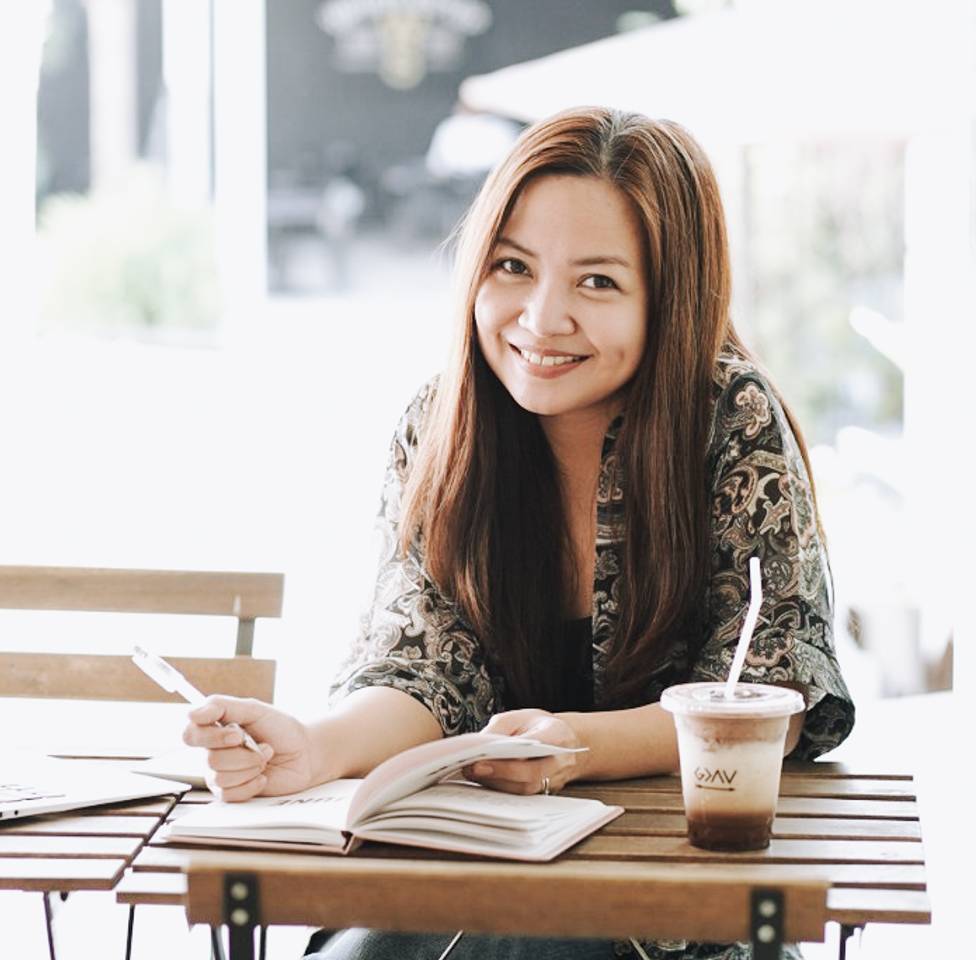
Rhiza Oyos
Senior SEO Manager
The theme for this year’s International Women’s Day is #BreakTheBias. What does it mean to you, and why do you feel passionate about breaking down bias?
I was raised by a very principled, passionate, and emphatic father–a pastor whose life’s work revolved around the poor urban communities of Manila. His audacious dream was to help raise the underprivileged youth and provide them with the education and tools to become functional members of society, and he did this throughout his life.
My earliest memories and understanding of breaking down biases began right there. To my two older brothers and me, those children were no different from us. They were our playmates, our closest friends. It wasn’t until I went to college that I noticed people having different opportunities because of their social class, and I started to question why things were unfair. I had to work harder and fight through my (perceived) limitations, but I also knew that the battle was not about breaking free from the social barriers and calling it a day. It’s more about attaining a greater influence, so I can help bridge gaps and, maybe, just like my father, blaze new trails for others to walk through.
Without going into my whole life story, I’m passionate about this because, to me, it’s about recognising everyone’s unique contributions and strengths regardless of race, gender, or social class. It’s also about acknowledging that others can come from backgrounds where they have to work harder to be seen and speak louder to be heard, and working together towards a world where this is not the norm.
I also think breaking down biases has to start from within. I believe self-awareness and self-acceptance are essential. We all come from different backgrounds and experiences that form our belief systems and biases – and it’s not inherently wrong to have them. When we fail to recognise our biases, it brings us to an unhealthy cycle of behaviours that cause insecurity and pain, ultimately dividing us further. It also means knowing our strengths and leveraging them, and accepting our uniqueness as a gift rather than a limitation. Only when we see our value can we become part of the greater work of helping others see theirs.
What is the most important piece of advice you have been given in challenging bias in your career?
Action speaks louder than words. I can’t quote a specific piece of advice, but I do know that much of my success in my career I can only attribute to having strong allies – revered men who supported women like me to have a “seat at the table.”
I spoke about my father, who was the first to give me trust and respect. He believed in what I could become and gave me the support and confidence I needed to realise my full potential. But before working at Airtasker, I always reported to male managers. Perhaps it’s because the SEO industry is predominantly male.
The collective experience of working alongside male leaders who are secure in themselves and believe in the ability of women to be in positions of leadership and authority was a catalyst for me. It also formed my beliefs in empowering women and challenging gender biases.
What do you consider as your best work/achievement so far? What do you think made it possible?
When I became a mother, I became even more aware of the challenges of earning an income whilst raising a family. Pre-pandemic, most mothers didn’t have the luxury of working from home. There was a time when I worked for an agency that employed freelance writers, and I was tasked to build and oversee a handful of content production projects.
Taking advantage of my unique position, I tapped into an online community of talented mothers who needed jobs from home whilst caring for their young kids. We helped dozens of companies grow their businesses through SEO and Content Marketing from this project. Still, the most satisfying part for me is its social impact on the mothers we employed for the job.
Similarly, a big chunk of my career has involved helping global companies find and build their own talent pool in Manila. I have loved the opportunity to train young professionals here and, as we say in Airtasker, help them realise the full value of their skills.
Why did you choose to become a professional in the Marketing/SEO industry?
It started as an accident! I wanted to be a writer or researcher, so I started a blog back in college. I became fascinated with CSS/HTML and front-end development while setting that up. It was the early days of SEO at that time, and my skillset lent itself well to the basic requirements of an SEO role. I was fortunate enough to land a job under the mentorship of one of the early practitioners of SEO in the Philippines, and the rest, as they say, is history.
What I love about the SEO profession is that there’s always something new to learn, algorithm changes to analyse, problems to solve, and I find myself wanting to keep going and growing in this career. I have loved practising and developing both my creative and technical skills and later adding UX, product thinking, and leadership growth into the mix.
How can we encourage more women to pursue a role in Marketing/SEO in their careers?
As with any job, I believe the key is to educate and open up opportunities for the young and spotlight more women thriving in this industry. Not many people may know that with SEO, most of the technical, creative, and analytical skills gained from any industry are easily transferable into this craft. And the great thing about this is that you can enter it at any stage in your career.
Many of the SEO professionals I know are career-shifters – some were teachers, music producers, photographers, artists, entrepreneurs, even architects and nurses. What we have in common, though, is a passion for creating content, helping people solve problems, and contributing to the broader mission of making quality information more accessible and discoverable. I think if we’re able to showcase more of what SEO is all about, more women might resonate with the profession and consider it as a path for them.
What’s one small thing that you think everyone can do on a daily basis to help #BreakTheBias?
Get to know the people you work with beyond the job they do. I love getting to know the people at Airtasker. My best conversations happen between meetings, learning about people’s backgrounds, countries of origin, favourite pastimes.
It’s often as simple as asking “what did you do over the weekend” or “what’s the last book you read” that sparks meaningful conversations about passions, values, and dreams. It’s an easy and effective bias-breaker. More importantly, in listening to other people’s stories, we find that we’re more alike than we think.
If you could have dinner with one famous woman from history, dead or alive, who would it be and why?
There are plenty! I would love to hang out and listen to the stories of great women of colour who are rocking the tech world like Ellen Pao, Julie Zhuo, and Reshma Saujani. Add great female researchers like Liz Wiseman, Brene Brown, or Erin Mayer to the list, too.
If I could have dinner with just one, I would want it to be Leni Robredo. She’s currently the Vice President of the Philippines, but she’s also a mother, a widow, a human rights lawyer, a leader. She is a woman who actively breaks biases and defeats the odds, rising above a deeply flawed, misogynistic and patriarchal society.
I have much to say about my admiration for someone who leads with empathy, fights for the marginalised, and sacrifices her life to pursue the Presidential seat, all whilst being a single mother. For Filipino women like me, her journey is truly inspiring.
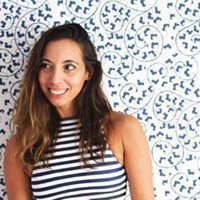
Josefina L.
NSW Top Tasker 2021, Art and Design
The theme for this year’s International Women’s Day is #BreakTheBias. Why do you feel passionate about breaking down bias?
For as long as I can remember, I’ve strived to work towards a fair society, hoping for everyone to have opportunities regardless of their gender, background, race, or religion. #BreakTheBias is to defy the misconceptions continually, champion fairness and equality, and consciously celebrate our differences.
What is the most important piece of advice you have been given in challenging bias in your career?
I would like to quote Maya Angelou: “If you’re always trying to be normal, you will never know how amazing you can be.” I try my best to be authentic and not be someone everyone expects me to be. I’ve learnt to go for what I want and back myself.
What do you consider as your best work/achievement so far? What do you think made it possible?
I’ve had a successful career in events and marketing, but I’d have to say my greatest accomplishment so far has been finding the courage to follow my dreams of becoming an artist.
Why did you choose your profession?
Drawing has been my passion since I can remember. I was that quiet kid in class drawing every day, then the teenager creating fashion illustrations for the high school zine. As I followed the opportunities presented to me through corporate roles, I never stopped exploring my creativity and working on developing my artistic talents.
What’s one small thing that you think everyone can do on a daily basis to help #BreakTheBias?
Be open and listen with conscious intention.
If you could have dinner with one famous woman from history, dead or alive, who would it be and why?
I’ve always been fascinated by the story of Frida Khalo and how she overcame her struggles. She made an impact in a male-dominated space and made history. She would have amazing advice to share and be a great character to laugh with!
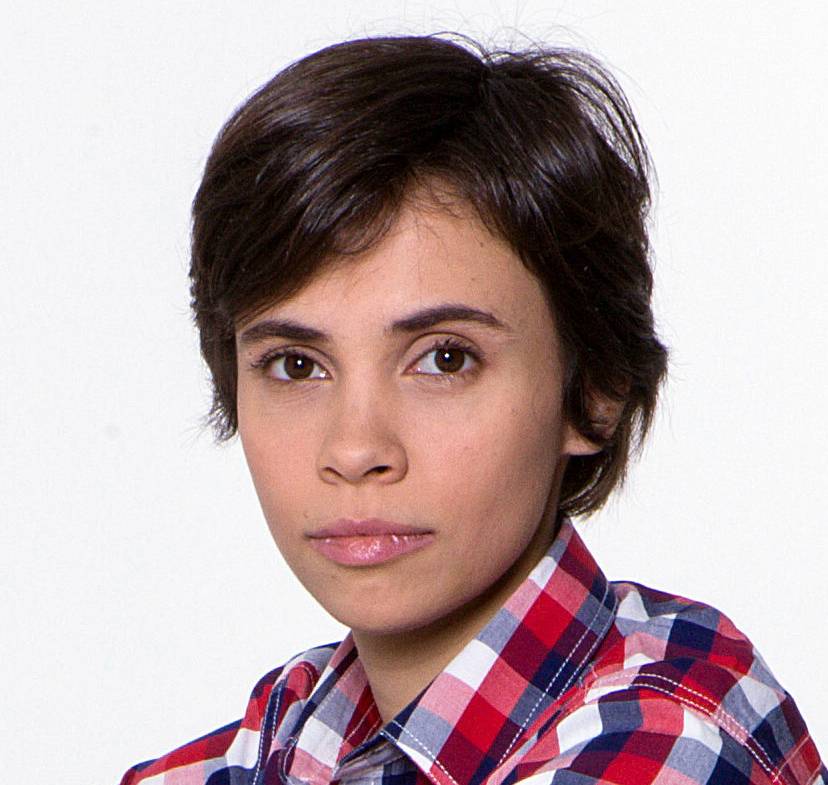
Juliana Juliano
Tech Lead Manager
The theme for this year’s International Women’s Day is #BreakTheBias. What does it mean to you, and why do you feel passionate about breaking down bias?
To me, it means being very intentional about identifying my own bias. If I am not aware of it, how can I break it, right? I believe in a world where people from diverse backgrounds can live, study and work together collaboratively, without preconceptions but with deep respect for what others bring to the table.
What is the most important piece of advice you have been given in challenging bias in your career?
For me, it wasn’t advice – it was a book entitled Thinking, Fast and Slow by Daniel Kahneman. This book gave me an understanding of the human mind and how biases are formed. It explains two systems of how the brain works. System 1 operates automatically, and it generates suggestions, impressions, feelings and intuition and feeds them to System 2. Meanwhile, System 2 is our rational consciousness and called upon for tasks that require mental effort.
System 2, however, operates under “comfort mode” and accepts most of what System 1 suggests because critically evaluating the messages takes concerted effort. This is why breaking bias takes effort, too – we need to invoke our System 2 intentionally.
This understanding helps me work through my own bias. It also helps me empathise with others who might not be aware of their own unconscious bias. It’s up to us who are aware of this to help educate others and approach it as “your brain is playing tricks on you” instead of judging them for their biases.
Why did you choose to become an Engineer?
Maths was my favourite subject at school. I clearly remember why I loved it so much because it felt like a puzzle I had to solve. I loved the logical side of it. I also loved computers and had plenty of websites when I was a teenager. Surprisingly, when it came to deciding what I wanted to do, IT was discarded because I saw it as a hobby.
After suffering through a year of Hospitality, I decided to change my major to Computer Science. It then became so clear that it’s where my passion lies. My first class was algorithms, I was hooked and never looked back!
What do you consider as your best work/achievement so far? What do you think made it possible?
Back in Brazil, I was assigned to lead a problematic team. The client was complicated, the code wasn’t great, there were no automated tests, no concept of versioning, and the engineers were working well into the night multiple times a week.
Fast forward two years, the client was happy, and the team had a much more structured way of working. It became a coveted team to work on. What made it possible? I saw something broken and I had to fix it. I am very patient, and I don’t shy away from investing time into something that will bring great returns in the future.
How can we encourage more women to pursue a role in Engineering in their careers?
I believe representation is key. Having as many different types of women in Engineering will help the younger generation see career opportunities in this field. That’s why it’s of great importance to give women who are currently in this career the best experience possible to ensure they thrive and experience long-term success.
Another key aspect is encouraging young women and children to pursue all different activities to find their true passion. Growing up in Brazil, I was very lucky to have parents who encouraged my sister and me in all kinds of activities. This is not the norm for many families in Brazil, where there is still a divide between what girls should do versus boys should do.
What’s one small thing that you think everyone can do on a daily basis to help #BreakTheBias?
It would have to be: “think again.” It’s because the very first thought that comes into our minds is full of biases. If you are in a situation where you are making a decision that will affect others, think again: are you considering this only from your point of view?
What is the strongest action of allyship you have experienced in your career?
I once had a colleague who was deaf. She didn’t work directly with me, but what I witnessed from her coworkers was enormous interest and effort to make her comfortable and included. The company was small and didn’t have the structure or experience to deal with this situation. I saw how her coworkers exposed the difficulties she was facing and strongly advocated for inclusivity so she could participate in all activities.
At that time, I wasn’t ready to participate in any of it; I was still being exposed to these issues. I watched, listened, soaked it all in, and tried to learn as much as possible from their inclusive action.
If you could have dinner with one famous woman from history, dead or alive, who would it be and why?
I would have to say Elis Regina, a Brazilian singer who I consider the best singer there ever was and ever will be. She passed away when she was only 37, and I was yet to be born. I was influenced by listening to her music because my mom is a fan. I would pick her because she defied the social norms of her era, had a strong personality and went by her life as she wanted to live it. And that is how I believe every woman should live.
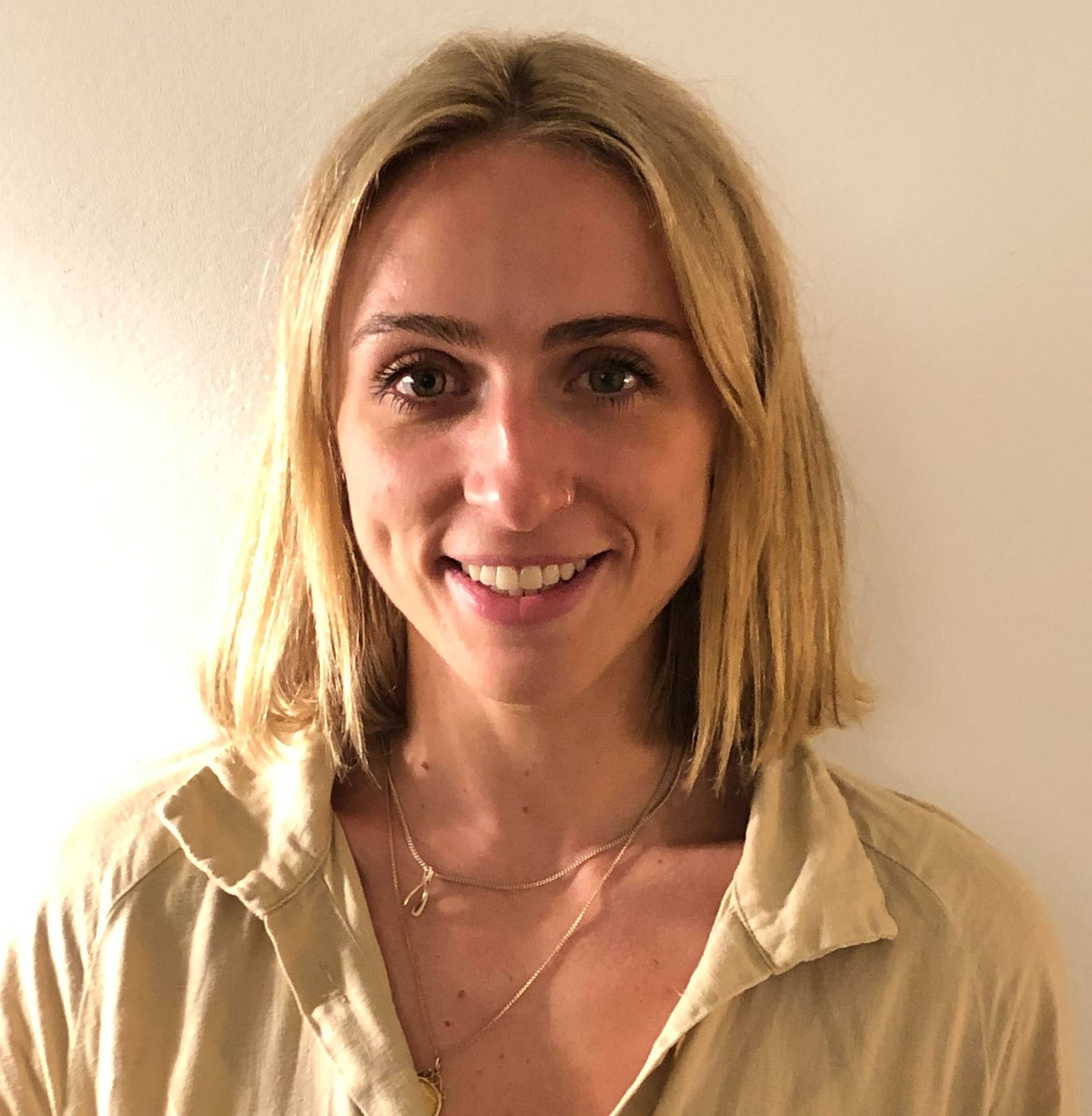
Hannah Sims
Product Manager
The theme for this year’s International Women’s Day is #BreakTheBias. What does it mean to you, and why do you feel passionate about breaking down bias?
We all have biases. We are born with them – they’re our brain’s way of quickly making sense of the world’s information. In some ways, biases are a superpower. But they can also lead to distorted thinking, especially when they drive us to reach conclusions about people based on their gender, age, ethnicity, race, or culture.
For me, IWD and the #BreakTheBias theme is about taking steps forward in creating a gender-equal world free of discrimination. I think it’s as much about driving awareness and understanding as it is about action. A lot of bias is subconscious, and unless we’re proactive about recognising it, we can’t change it.
I find it pretty crazy that, in 2022, women are still facing significant barriers to success. We’ve made excellent progress, but we still have a very long way to go, and I’m passionate about playing my role.
What is the most important piece of advice you have been given in challenging bias in your career?
Back yourself, and surround yourself with others that back you.
I was lucky enough to grow up in an amazing family that taught me I could be anything I wanted to be, as long as I believed in myself.
You’ve got to dismiss the niggling self-doubts, create opportunities for yourself and have the confidence to jump two feet in. You’ve got to be your own biggest fan. It sounds cliché, and it’s a lot easier to say than it is to do, but it’s so important.
What do you consider as your best work/achievement so far? What do you think made it possible?
In my previous company – an HR software platform – I had just been given a full-time role after a Marketing internship. I was young and hungry, and I wanted to be a Product Manager.
I spent a lot of time with customers and started to identify a really obvious gap in the market – our smaller customers wanted to give their staff a healthcare product but couldn’t afford to. I spent a good few months secretly researching the healthcare space and put a proposal together for a new ‘Medical’ product line. It would require us to partner with healthcare providers, jump through regulation hoops and fund an engineering team.
After sitting on it for weeks, I finally mustered the courage to present the proposal to any of the execs who would listen. I wouldn’t say they bought it instantly. It was a grind, and it took a good few months of heavy persuasion. But they eventually funded it, and I spent the next 1.5 years designing, building and launching a new product in a space I felt passionately about. I absolutely loved it.
The product ended up in the hands of tens of thousands of UK employees who otherwise wouldn’t have had access to any private healthcare. Most of all, it gave me an incredible opportunity to learn and a lot of confidence in myself.
My manager at the time was an amazing enabler and a great ally to me. The opportunity opened up because he gave me a seat at the table and heaps of sponsorship, and I’m still so grateful for that. There were others who put a lot of trust in me as well, from senior execs and my Product team to the insurance brokers and specialist healthcare providers we partnered with. And there was a good dollop of blind faith from my side in the mix, too.
Why did you choose to become a Product Manager?
Like many, I kind of ‘fell’ into Product Management. I was sucked in by the opportunity to build and create. I’m a very curious person and was always attracted to the entrepreneurial side of the role. As soon as I’d had a taste, I was hooked. The feeling of a collective force that exists when a team of specialists collaborate is pretty special to me and not something you get in many other roles.
How can we encourage more women to pursue a role in Product Management in their careers?
Product Management is nearly 70% male. There are a lot of things we can do to change this, but a few stand out for me.
First up, we need to #BreakTheBias in our hiring by recruiting women into the discipline actively. There’s a lot of data that shows that women are less likely to apply for roles when they don’t feel they meet the requirements in the job description. We need to be smart about the language we’re using and proactive in finding and bringing in female PMs.
Secondly, we need to create awareness of the skills needed to be effective in the role. Product Management is not a well-understood discipline, but one of the amazing things about it is that a whole range of skills can propel you to success, from creativity, stakeholder management and persistence to leadership, stamina and problem-solving. PMs come in all shapes and sizes, and we need to articulate this better. I don’t come from a technical background, and it took me a long time (and a lot of support from others) to realise that whilst I needed to grow in this area, I had other valuable skills to offer.
Finally, we need to get more women in Product leadership roles. More diversity in leadership leads to more empathetic management, stronger internal relationships and better business outcomes.
What’s one small thing that you think everyone can do on a daily basis to help #BreakTheBias?
Educate yourself on what bias looks like and speak up if you see displays of stereotyping or discrimination. This doesn’t necessarily mean confronting colleagues or calling people out. Small gestures such as handing the mic to the quieter participants in a meeting and asking what they think can go a long way.
I’d really welcome men to work to join the conversation. The world of female empowerment and “feminism” can be daunting, and I think (somewhat ironically) it hasn’t always been particularly inclusive. But I believe men have a huge role in breaking the bias. If we’re going to make progress, we need to do it together. Both men and women need to #OwnIt.
If you could have dinner with one famous woman from history, dead or alive, who would it be and why?
Dame Cressida Dick is a counter-terrorism specialist who has led the Metropolitan Police in London as Commissioner (the UK’s top police officer) since 2017. She’s the first female and the first openly gay officer ever to lead the Met.
She’s fought through immense challenges to work her way up the ranks in what is a heavily male-dominated force and has built strong bonds of trust with many senior politicians. She’s actually resigned in the last few weeks, but she has had an incredible journey and can teach us all a lot. I’d pay very good money to pick Dame Cressida’s brains over dinner!


